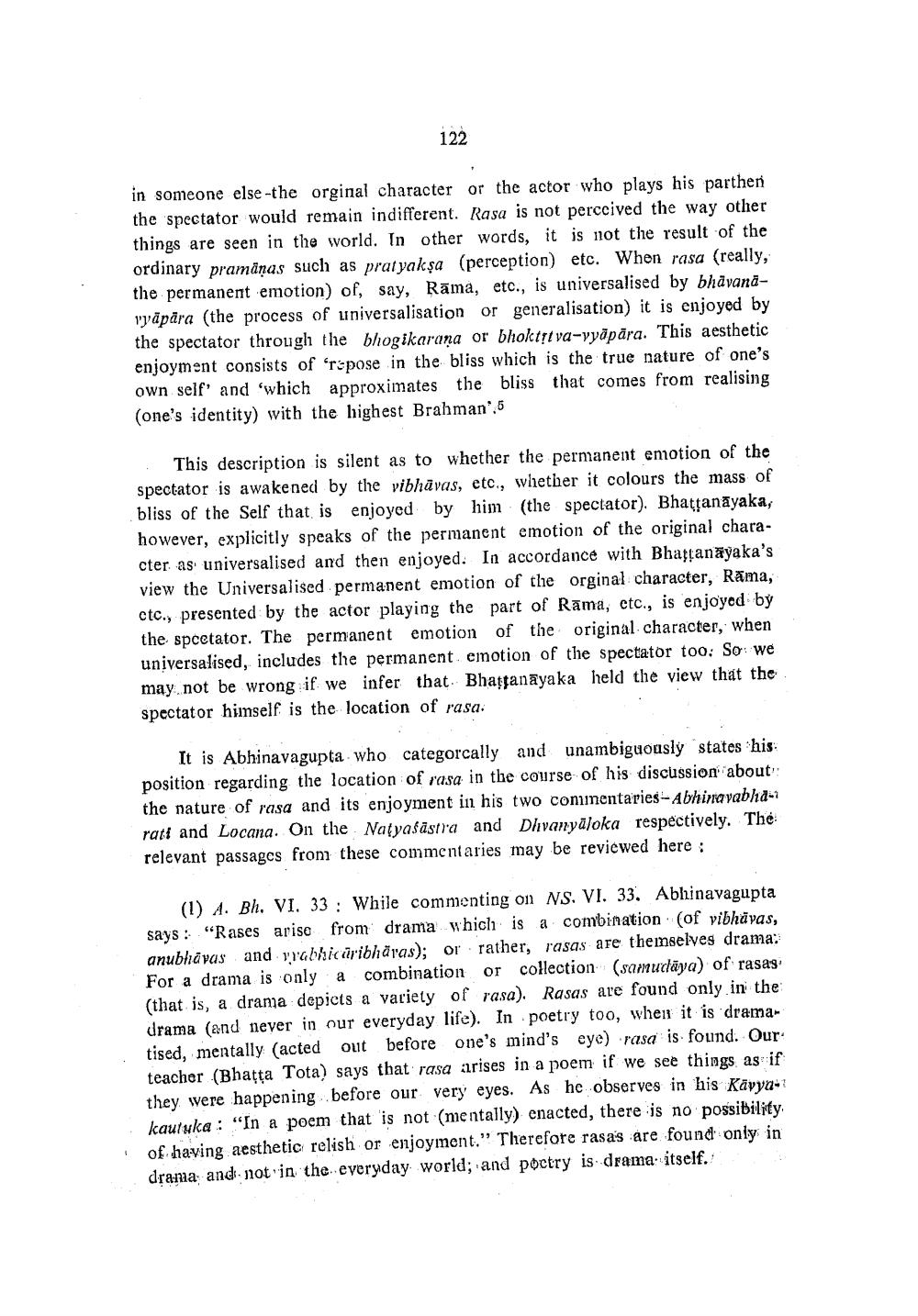________________
122
in someone else -the orginal character or the actor who plays his parthen the spectator would remain indifferent. Rasa is not perceived the way other things are seen in the world. In other words, it is not the result of the ordinary pramäņas such as pratyaksa (perception) etc. When rasa (really, the permanent emotion) of, say, Rāma, etc., is universalised by bhavanavyāpāra (the process of universalisation or generalisation, it is enjoyed by the spectator through the bhogikarana or bhoktįtva-vyāpāra. This aesthetic enjoyment consists of “repose in the bliss which is the true nature of one's own self' and 'which approximates the bliss that comes from realising (one's identity) with the highest Brahman'.5
This description is silent as to whether the permanent emotion of the spectator is awakened by the vibhāvas, etc., whether it colours the mass of bliss of the Self that is enjoyed by him (the spectator). Bhattanāyaka, however, explicitly speaks of the permanent emotion of the original character as universalised and then enjoyed. In accordance with Bhatšanāyaka's view the Universalised permanent emotion of the orginal character, Rama, etc., presented by the actor playing the part of Rāma, etc., is enjoyed bý the spcetator. The permanent emotion of the original character, when universalised, includes the permanent emotion of the spectator too: So we may not be wrong if we infer that. Bhatjanāyaka held the view that the spectator himself is the location of rasa.
It is Abhinavagupta who categorcally and unambiguously states his position regarding the location of rasa in the course of his discussion about the nature of rasa and its enjoyment in his two commentaries -- Abhingyabharati and Locana. On the Natyaśāstra and Dhvanyaloka respectively. The relevant passages from these commentaries may be reviewed here :
(1) A. Bh. VI. 33: While commenting on NS. VI. 33. Abhinavagupta says: “Rases arise from drama which is a combination (of vibhävas, anubhāvas and wabhicuiribhāras); or rather, rasas are themselves drama: For a drama is only a combination or collection (samudāya) of rasas (that is, a drama depicts a variety of rasa). Rasas are found only in the drama (and never in our everyday life). In poetry too, when it is dramatised, mentally (acted out before one's mind's eye) rasa is found. Our teacher (Bhatta Tota) says that rasa arises in a poem if we see things as if they were happening before our very eyes. As he observes in his Käyya-? kautuka : "In a poem that is not mentally) enacted, there is no possibility of having aesthetic relish or enjoyment." Therefore rasa's are found only in drama and not in the everyday world; and poctry is drama. itself.




